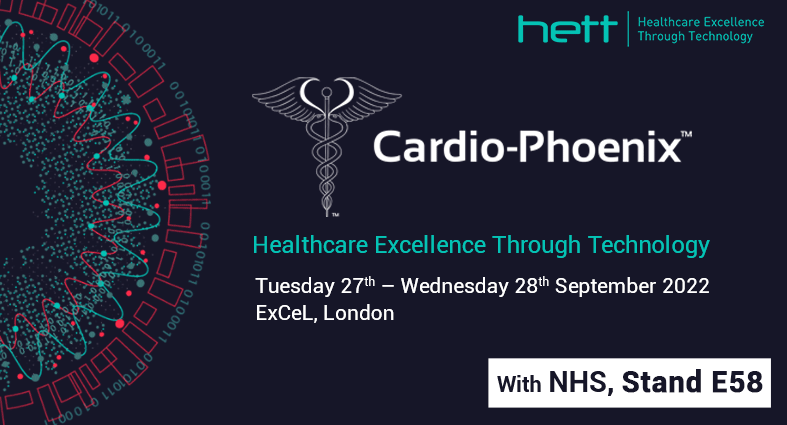On the last stay at CADECI 2020, a word about Cardio-HART, the breakthrough device is already being talked about on a large scale. Potential patients have to stay patient and wait for the turn to get examined. Heartbeats are getting higher in expectation, in order to be checked with CHART where they will find out its truthful state.
Facing challenges
Those whose test results came late yesterday were lined up first this morning to collect them. GP’s and cardiologists, reluctant 1st reviewers, are leading the way again in buzzing around after realizing what Cardio-HART actually can do for them. From one of them, you could clearly hear that he said it will increase the number of patients being sent to him and all other patients that he really needs to check.
By the end of the day, 24 tests were done. Friendly Mexican nurses that were assisting at Cardio-Phoenix Live Clinic were really getting work done. On average, 10-15 minutes was taken per test.
In addition to the challenge of trying to get everyone waiting to get a chance to test themselves, there were also challenges with weird device readings. Thanks to our team of experts, our support team back in Europe, the problem was diagnosed and solved in enviable speed.
Interference was caused by external influences. As a congress is not a controlled medical environment, factors such as metal frames of Cardio-Phoenix booth were interfering with ECG signals. Those frames created a large antenna effect on ECG signals. The support team realized that on the very first day of the congress and applied special filters to ensure the ECG signals were not affecting the diagnosis. The result of such proficient action is a decade of experience in action. After 7 years of clinical studies with no such problems, it was a bit of a concern and they just had to know what the source of it was. When they confirmed the source of the problem, there was a sort of grown.
All tests were cleaned and processed so the results are medically accurate. We’ll never stop learning.
Potentially one saved life
Do you remember young adults from the previous day? The medical students? They came back with friends. This day was definitely good that they showed up in force for testing after one of them was diagnosed with a severe heart problem that her doctor had not seen. Suspecting she had more severe problems, she came for her own examination with us. She got a “Refer to Cardiologist”, with Priority “Immediate”. Therefore, friends believing they were also at risk, were tested but unfortunately, several dozens were turned away as there were no remaining appointment slots. A medical professor from the university, who was also tested by us was so impressed, he wants to conduct a study of young patients. His theory is that there are many students who have no idea if they have heart problems or not. We’d like to pursue this line of study.
Research Study in Primary care
Another cardiologist is doing a big study on women’s health in particular heart health. She was stunned when she saw what the device could do for her. She requested we support her study as our device provides the perfect diagnosis she is searching for, she can avoid doing Echo’s for each as the primary diagnosis – our device would allow for something she was not expecting, to keep the study in Primary Care, (first level of care). Her hypothesis is based on the notion that women’s health issues are ignored in primary care but that is where the biggest and most beneficial effect of care could be achieved, at the most modest cost. We think her hypothesis is correct. We are going to support her with this research.
The day ended with a rush of appointments as cardiologists and GP’s tried to get the tests done before they left. Many were demanding to be tested as they’d seen the results from their colleagues and wanted to see for themselves.
Another great achievement
FDA has already categorized us as breakthrough but with little risk. CE Mark endpoints were similar, our notified body going from “impossible” to “impressive”. We expect both to completed within 60 days, FDA being first.
Another great achievement of our Guadalajara show was that we showcased our new AWS infrastructure, designed not only to support our testing but to make it very secure. Tests taken in Guadalajara Mexico were processed by AWS EAST in Virginia. The average turnaround time for processing was less than 3 minutes. We were only limited by internet bandwidth limited by the show. As impressive, our new AWS infrastructure was designed around the security of information, with everything being encrypted.
To sum up
Overall, the CADECI 2020 show in Guadalajara was a major success. With 86 tests conducted over 4 days. 71 involving Cardiologists and GP’s, 6 on government administrators and the remainder on medical students and two parents of a GP who was so impressed by her own test she asked to bring her parents. (one resulted in Send to Cardiologist, priority Routine, the other was 6-month watch). A grateful GP – she didn’t know!
As a result of CADECI 2020 Congress, Mexican authorities have agreed to fast-track the approval after FDA or CE Clearance.
Guadalajara was a great World Premier for Cardio-HART!.





